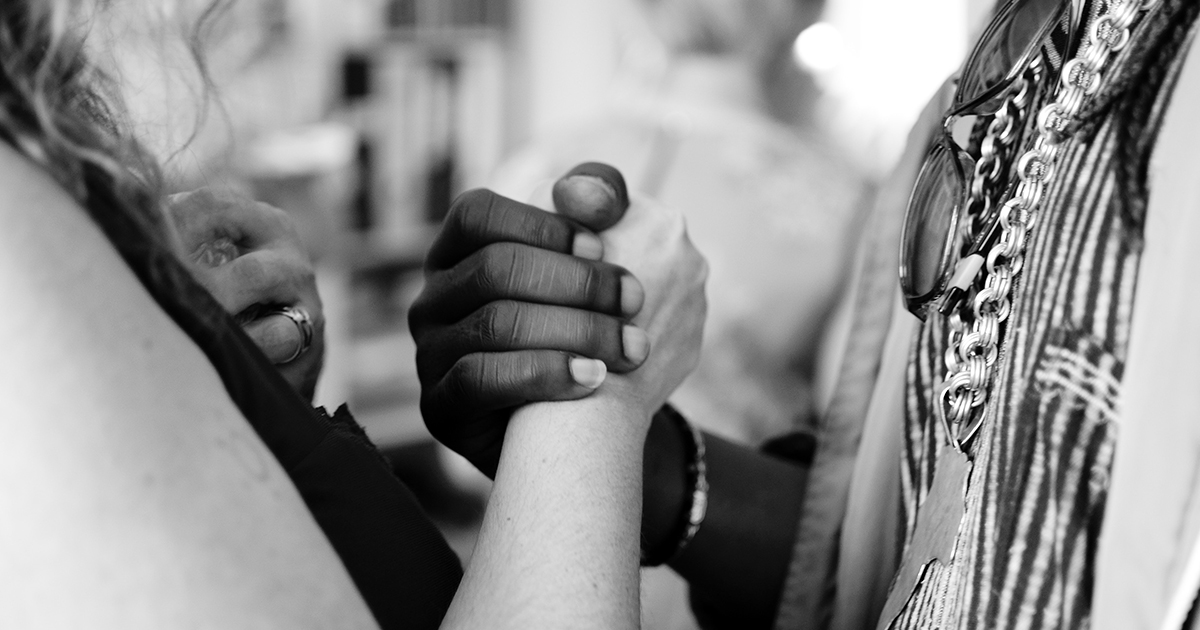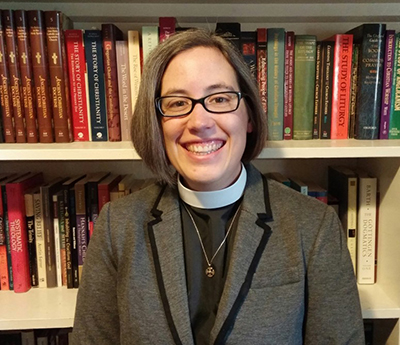SOUL MATTERS
★ ★ ★ ★
RACIAL REPENTANCE

Over the past days, we have seen yet again definitive evidence that the leader of the free world is a certifiable racist. A crude comment disparaging the individuals from countries without predominantly white populations is just the latest example of the white supremacy that dominates our government at the moment.
I must admit, I find it difficult to refrain from railing against every latest example of the president’s overt bigotry. At the same time, I cannot help but feel that expending our energy railing against the overt racism of people like Donald Trump and Steve Bannon is not the best way for me personally to fight against white supremacy. It is easy to condemn racism in others, especially when that racism is on display for all who have eyes to see it. It is a lot more challenging to do that hard work of seeing and accepting the racism of which I am guilty as a white person who benefits from (and is inevitably complicit in) racist systems.
I recently read America’s Original Sin: Racism, White Privilege and the Bridge to a New America by Jim Wallis. It is a book by a white author, specifically a white Christian author (Wallis is the founder and editor of the progressive Christian magazine Sojourners), and it is addressing a specifically white, Christian audience. Fundamentally, the book is a call to repentance with a very simple central argument: “Only by telling the truth about our history and genuinely repenting of its sins, which still linger, can we find the true road to justice and reconciliation.”
As a religious leader who strives to work for racial justice, it seems part of what I am called to do is reclaim the language of repentance for the collective sin of white supremacy. In a spiritual context, repentance is about a lot more than feeling bad that racism exists in our country and in our communities. Repentance is a process—sometimes a long process—of owning our transgressions and seeking atonement for them. For all that churches and other religious institutions like to preach about repentance when applied to individual sins, we become deeply uncomfortable applying the notion of repentance to the context of racial reconciliation.
In the case of systemic racism and white supremacy, faith communities and especially (speaking from my own context) white Christians have a really bad habit of wanting to jump quickly to language of forgiveness—avoiding repentance altogether. If we could all just love each other, so the sentiment goes, all the racial problems in our country would be solved.
There are, however, a few problems with this approach to racial injustice. Such “feel-good” ideology does not account for the ongoing oppression and violence being done to people of color in our communities. Furthermore, when it comes to those of us who enjoy tremendous racial privilege, a call for premature forgiveness also fails to own how we continue to benefit from unjust racial systems.
In contrast, the work of genuine repentance is about having the courage (and the humility) to see and name the sins in which we are complicit. When it comes to the sins of racism and white supremacy, that means being willing to own the way that we have benefited from oppressive systems. I will, God willing, never have to teach my son how to avoid being shot by a police officer who makes a snap judgment based on the color of his skin. Black mothers do not have that luxury. I can feel bad about my privilege, or I can repent of it. Only when we can name the ways in which we benefit from racist systems can we then move forward in the process of dismantling them.
This brings me to a more hopeful conclusion. As a person of faith, I undertake the work of racial repentance in the hope of grace and reconciliation. Martin Luther King, Jr., worked to build what he called the “beloved community”—a reality in which people of all racial identities lived in loving relationship with one another. The promise of the beloved community, however, begins with those of us who have benefited so long from injustice listening to those from different backgrounds. Hearing their stories and taking up the burden of fighting for racial justice—without taking over the narrative.
It is of course important to call out political leaders for comments and attitudes which cannot be defended. Nevertheless, let us be wary of allowing the egregious behavior of those in power to excuse us from doing the hard and heavy work of examining the racism that exists within ourselves. For it is only in naming the truth that the truth can set us free.

























A wonderful sentiment, expressed so well. We all need to work for each other, and for ourselves.
How good to see this in writing, after hearing it so powerfully spoken.